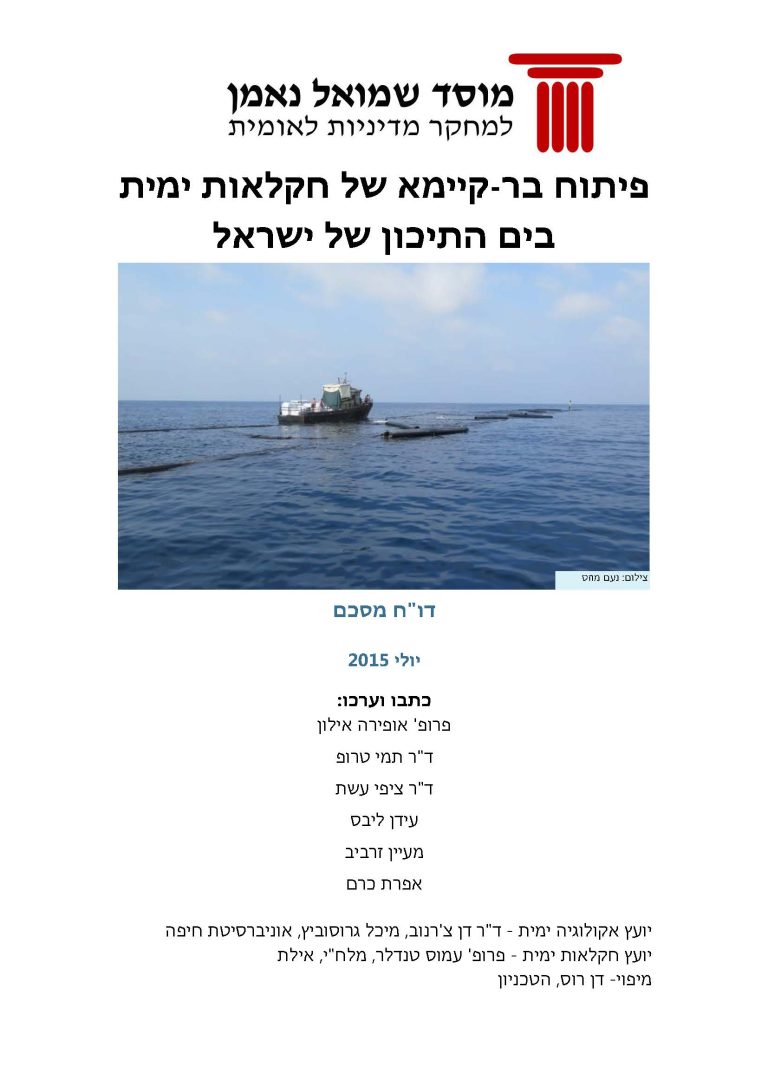According to the Food and Agriculture Organization (FAO) publication, most of the world fishing areas have been fully utilized or over fished, while demand for seafood (fish, mollusks, crabs and algae) is increasing, due to their nutritional benefits. In order to deal with the global food crisis, and the gap between the quantity supplied by fishing and the demand, governments and food industries invest in developing aquaculture.
Israel was one of the first countries in the Middle East (45 years ago) to use seawater for mariculture of fish and other marine species with economic value. Today, alongside global consideration, Israel has its own important motives to develop aquaculture.
The main purpose of this document is to set out guidelines for a government policy for sustainable mariculture in the Mediterranean Sea in Israel. Focusing on the analysis of the environmental and ecological impacts, locating mariculture sites for future development, and establishing this sector on solid economic analysis. This document outcomes will be integrated into national agriculture and mariculture policy and planning documents. It is important to note that this report is a path toward the development of the mariculture industry in Israel, therefore, further detailed planning will be needed for any marine farm. In addition, this document does not deal with other sectors overlapping fish growing that can be integrate with industries such as algae grow for food or biodiesel produce, and other seafood developing.












